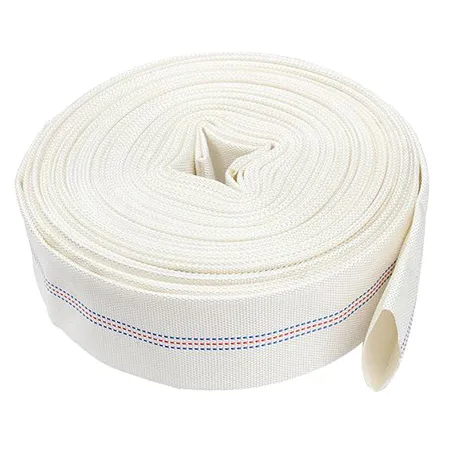Exploring the Benefits and Applications of Layflat Hoses in Various Industries
Understanding Layflat Hoses Applications, Benefits, and Features
Layflat hoses have become an essential component across various industries due to their unique properties and versatile applications. Unlike traditional hoses that tend to maintain a fixed shape, layflat hoses are designed to lay flat when not in use, making them easy to store, transport, and deploy. This article will explore what layflat hoses are, their applications, benefits, and features that make them indispensable in many fields.
What are Layflat Hoses?
Layflat hoses are flexible hoses made from high-quality materials, often reinforced with synthetic fabric, that allow them to expand under pressure and then flatten when not in use. The hose's design is practical; it allows for minimal storage space and easy handling. These hoses are typically available in various diameters and lengths, catering to different operational needs.
Applications of Layflat Hoses
The applications of layflat hoses are extensive and span several industries
1. Agriculture Layflat hoses are widely used for irrigation purposes in agriculture. They can efficiently convey water over large areas, making it easier for farmers to water their crops. Their flat design allows for quick deployment, and they can be easily rolled up for storage when not in use.
2. Construction In construction, layflat hoses are commonly used to pump water away from sites, especially in dewatering applications. Their ability to project water over long distances helps in keeping the worksite dry and safe.
3. Firefighting Firefighters often employ layflat hoses for their lightweight and portable nature. They can quickly be unrolled and set up, providing a robust supply of water at the site of an emergency.
4. Mining Layflat hoses are used in mining operations to transport water and other fluids necessary for various processes, including dust suppression and equipment cooling.
5. Industrial Applications Many industries utilize layflat hoses for fluid transfer in manufacturing or processing plants. Their durability and chemical resistance can handle a range of substances, from water to more aggressive fluids.
Benefits of Layflat Hoses
There are several advantages to using layflat hoses, which contribute to their popularity across diverse sectors
layflat hoses

1. Portability One of the most significant advantages is their portability. Layflat hoses are lightweight and can be easily transported on trucks or other vehicles. This feature makes them ideal for remote job sites or emergencies.
2. Space Efficiency When not in use, layflat hoses can be rolled up into a compact shape, saving storage space. This is particularly beneficial for businesses that require a large number of hoses but have limited storage available.
3. Cost-Effective Layflat hoses tend to be more affordable than rigid piping systems. Their flexible nature also means lower installation costs since they can often be rolled out in place without special equipment.
4. Versatility With their variety of sizes and materials, layflat hoses can be used in numerous applications, adjusting to specific industry needs without the need for different types of hoses.
5. Durability Layflat hoses are designed to withstand harsh conditions, including high pressures, abrasions, and chemicals. This durability ensures a long life cycle, which translates to lower replacement costs over time.
Features of Layflat Hoses
When considering layflat hoses, there are several critical features to keep in mind
- Material Composition Most layflat hoses are made from PVC or polyurethane, providing flexibility while maintaining strength.
- Reinforcement Many layflat hoses are reinforced with polyester or other fabrics to enhance their strength and resistance to punctures, ensuring reliability under pressure.
- Diameter and Length Options Layflat hoses come in various diameters, typically ranging from 1 inch to 16 inches, and lengths that can vary based on specific needs.
- Temperature and Chemical Resistance Depending on the material, layflat hoses can offer different levels of resistance to temperature variations and chemicals, making them suitable for specific applications.
In conclusion, layflat hoses are an integral tool across various industries due to their flexibility, durability, and ease of use. Their unique design allows for efficient storage and transportation, making them a practical solution for multiple applications. For anyone in need of a versatile and reliable hose, layflat hoses present an excellent choice.
-
Top Quality Oxy Acetylene Hoses for Sale Fit for Welding DemandsNewsJul.28,2025
-
The Future of Pneumatic Air Tubes in IndustryNewsJul.28,2025
-
Superior and Reliable LPG Hose Pipe Solutions for Every NeedNewsJul.28,2025
-
Exceptionally Durable and Versatile Premium Braided PVC TubingNewsJul.28,2025
-
Best Adapters for Connecting Garden Hose to PVC Pipe ConnectionsNewsJul.28,2025
-
The Essential Role of LPG Hoses in Safe and Efficient Gas DistributionNewsJul.16,2025














